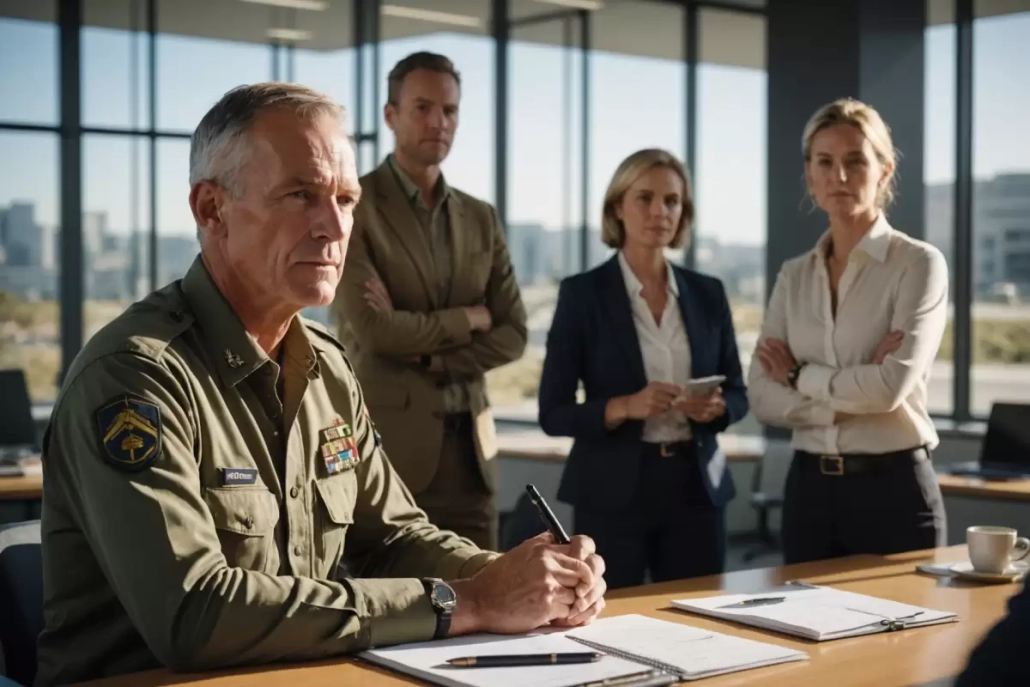Transitioning from a structured military environment to the fluid world of civilian careers is not just a change of job; it’s a transformation of identity. For Australian Defence Force (ADF) veterans, this shift can be both exhilarating and daunting. The skills honed in the military—leadership, discipline, and strategic thinking—are invaluable, yet veterans often find themselves at a crossroads, wondering how to translate these into a civilian context. As the world evolves, so do the opportunities for veterans to carve out new paths that honor their past while embracing their future.
Bridging the Gap: Beyond Traditional Roles
The traditional image of veterans stepping into security or defense-related roles is rapidly changing. Today, ADF veterans are venturing into diverse fields such as technology, creative industries, and entrepreneurship. The key lies in recognizing the versatility of military skills. For instance, the precision and analytical skills of a military engineer can seamlessly transition into tech startups or innovation labs. Similarly, the strategic planning expertise of a military officer can be a game-changer in corporate strategy roles.
The Rise of Veteran Entrepreneurs
Entrepreneurship is an exciting avenue for veterans eager to forge their own paths. The military instills a unique resilience and problem-solving mindset, which are critical in the startup world. Veterans are increasingly launching businesses that not only provide personal fulfillment but also contribute to the economy and create jobs. From tech solutions to artisanal crafts, veteran-led enterprises are thriving, driven by a commitment to excellence and innovation.
Embracing New Cultures: The Civilian Workplace
Adapting to civilian work culture can be a significant hurdle for many veterans. The military’s hierarchical structure contrasts sharply with the often informal and dynamic nature of civilian workplaces. Yet, this transition offers a chance to embrace new forms of collaboration and creativity. Veterans bring a fresh perspective to teams, fostering diversity of thought and approach.
Building a Supportive Network
Creating connections within civilian industries is crucial. Networking events, professional associations, and veteran-specific groups provide platforms for veterans to share experiences and insights. These networks not only offer support but also open doors to unexpected opportunities. Engaging with mentors who have successfully navigated the transition can provide invaluable guidance and encouragement.
The Power of Storytelling: Communicating Your Value
One of the most effective ways veterans can showcase their skills is through storytelling. Crafting a compelling narrative that highlights achievements and experiences in relatable terms can captivate potential employers. This involves translating military accomplishments into civilian language, focusing on outcomes and impact. A logistics officer’s experience in managing complex operations, for example, can be framed as expertise in project management and efficiency optimization.
Tailoring Your Personal Brand
In the competitive job market, personal branding is essential. Veterans should focus on developing a brand that reflects their unique skills and experiences. This includes creating a polished LinkedIn profile, engaging in thought leadership through articles or talks, and maintaining a professional online presence. A strong personal brand not only attracts employers but also positions veterans as leaders in their chosen fields.
A Lifeline for Veterans: Resources and Support
Navigating the transition from military to civilian life is a journey best undertaken with support. Ironside Resources provides a comprehensive suite of services tailored to ADF veterans, from career counseling to job placement assistance. Their blog post, ADF Veteran Job Search: Transition With Confidence, delves into the nuances of this transition, offering practical advice and insights. For veterans seeking to explore new career horizons, this resource is an invaluable guide to navigating the job market with assurance and clarity.
Embracing the Future: A Call to Action
As ADF veterans embark on their civilian careers, the possibilities are limitless. By leveraging their unique skills, embracing new cultures, and crafting compelling narratives, veterans can redefine their professional identities. With the right support and resources, the transition can be a rewarding journey of growth and discovery. For further reading on how veterans worldwide are making an impact in various industries, explore Veterans Affairs for inspiring stories and additional resources.



